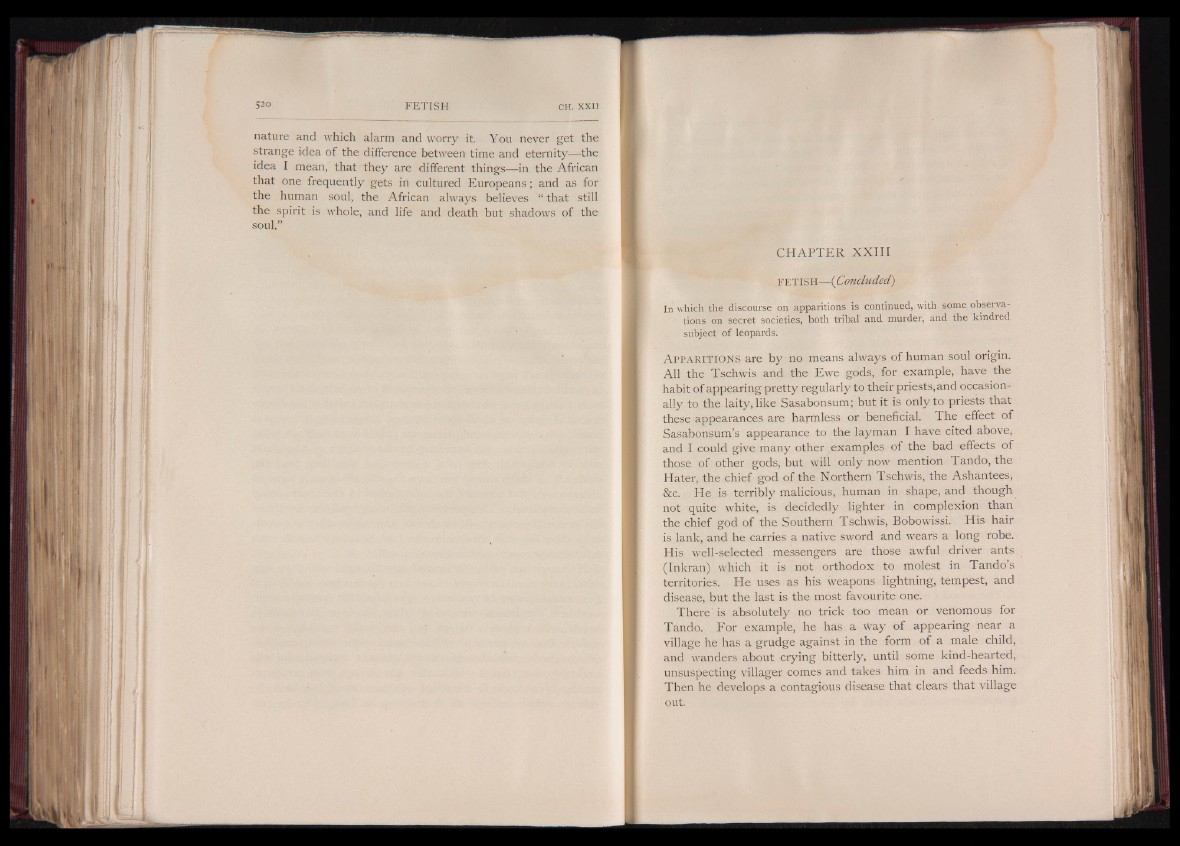
nature and which alarm and worry it. You never get the
strange idea of the difference between time and eternity— the
idea I mean, that they are different things— in the African
that one frequently gets in cultured Europeans; and as for
the human soul, the African always believes “ that still
the spirit is whole, and life and death but shadows of the
soul.”
CHAPTER X X III
FETISH— (Concluded)
In which the discourse on apparitions is continued, with some observations
on secret societies, both tribal and murder, and the kindred
subject of leopards.
APPARITIONS are by no means always of human soul origin.
All the Tschwis and the Ewe gods, for example, have the
habit of appearing pretty regularly to their priests, and occasionally
to the laity, like Sasabonsum; but it is only to priests that
these appearances are harmless or beneficial. The effect of
Sasabonsum’s appearance to the layman I have cited above,
and I could give many other examples of the bad effects of
those of other gods, but will only now mention Tando, the
Hater, the chief god of the Northern Tschwis, the Ashantees,
&c. He is terribly malicious, human in shape, and though
not quite white, is decidedly lighter in complexion than
the chief god of the Southern Tschwis, Bobowissi. His hair
is lank, and he carries a native sword and wears a long robe.
His well-selected messengers are those awful driver ants
(Inkran) which it is not orthodox to molest in Tando s
territories. He uses as his weapons lightning, tempest, and
disease, but the last is the most favourite one.
There is absolutely no trick too mean or venomous for
Tando. For example, he has a way of appearing near a
village he has a grudge against in the form of a male child,
and wanders about crying bitterly, until some kind-hearted,
unsuspecting villager comes and takes him in and feeds him.
Then he develops a contagious disease that clears that village
out.